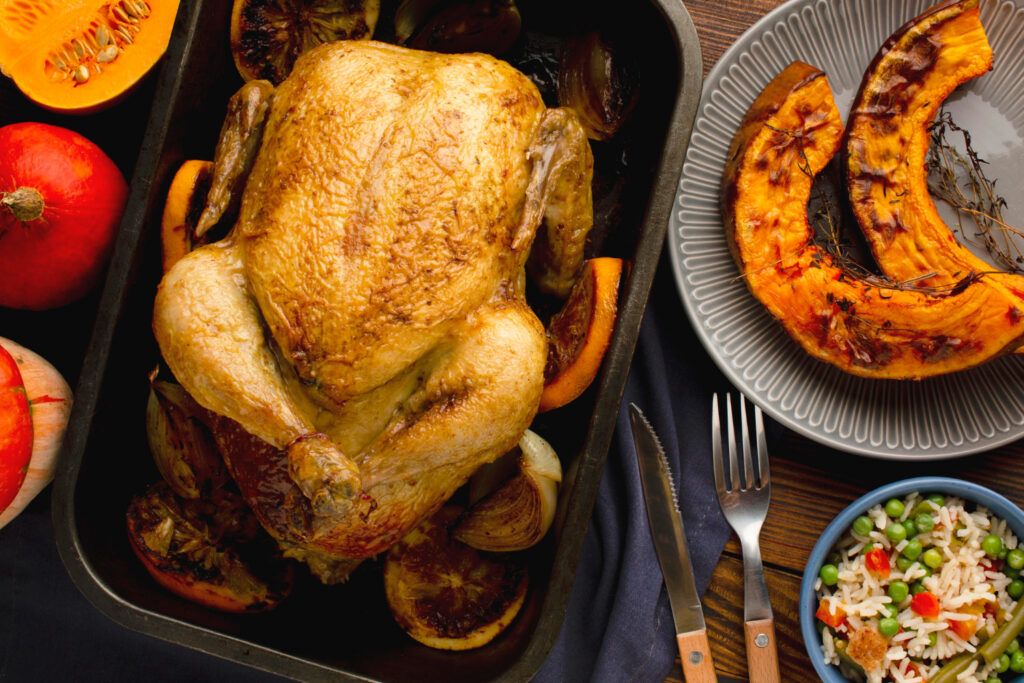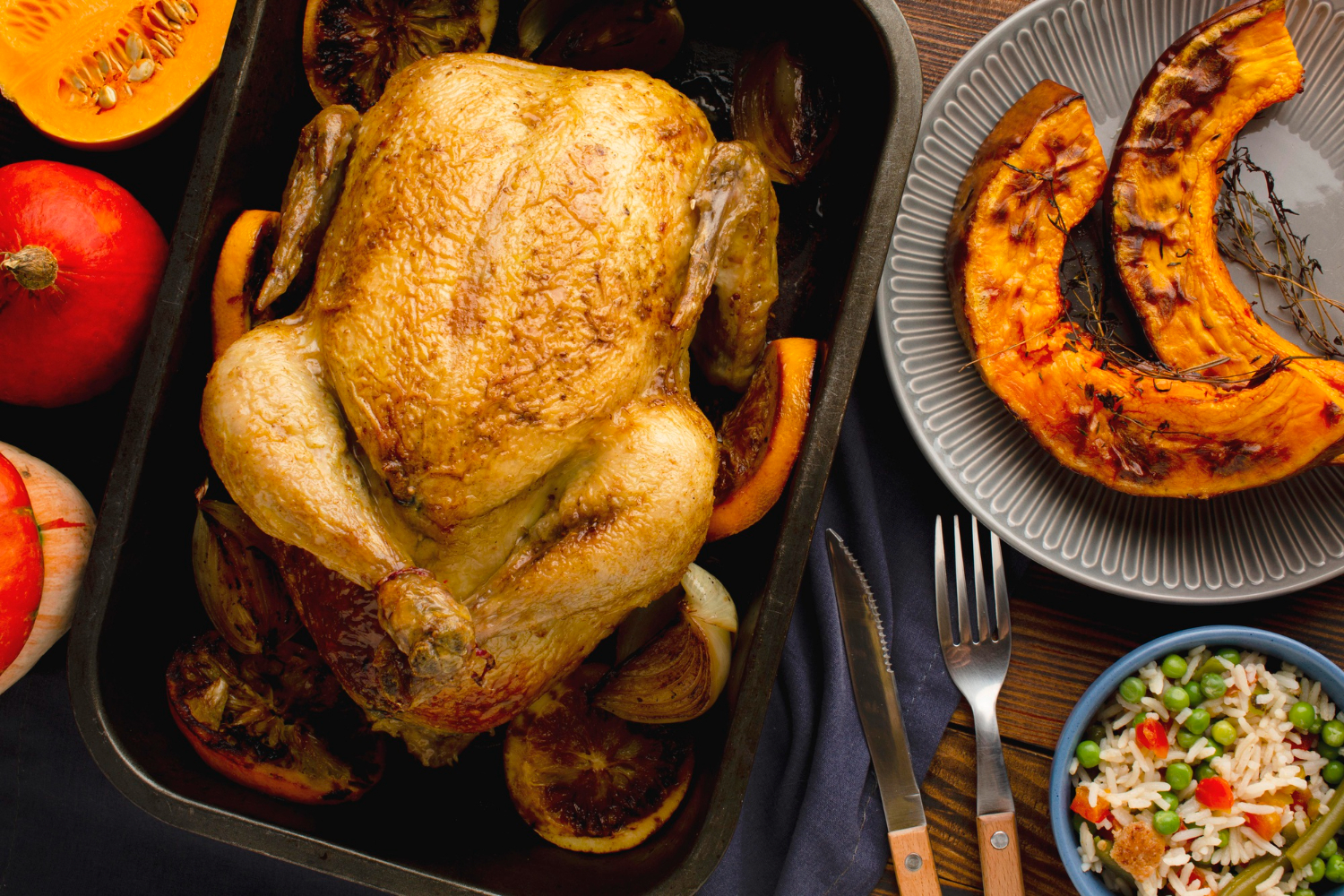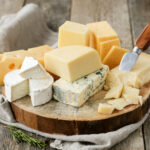
In this article
Overview
Poultry, which includes a variety of birds like chicken and turkey, is a staple in diets around the world. Known for its high protein content and essential nutrients, poultry is a versatile and nutritious option for many. Protein, a crucial component in every cell, is vital for building and maintaining bones, muscles, and skin. Choosing the right type of poultry can significantly impact your health, particularly when considering factors like fat content and nutritional value.
The Importance of Lean Poultry
Opting for lean poultry, such as skinless chicken or turkey, provides a high-protein, low-fat alternative to other meats. Since all animal meats contain some level of saturated fat, which can raise cholesterol levels and increase the risk of heart disease, it’s essential to choose leaner options. This article delves into the healthiest poultry choices, backed by expert advice, to help you make informed decisions for your diet.
Chicken: A Nutrient-Rich Option
Skinless Chicken Breast
Skinless chicken breast is a widely available, lean source of protein. A 100-gram serving provides 106 calories, 22.5 grams of protein, and just 1.93 grams of fat. Besides being low in fat, chicken breast is rich in phosphorus, offering 17% of the daily value (DV). Phosphorus is crucial for energy production and maintaining bone and dental health.
Chicken Drumsticks
Chicken drumsticks are another excellent lean protein source, containing 116 calories, 19.4 grams of protein, and 3.71 grams of fat per 100 grams. They are also high in niacin (vitamin B3), providing 33% of the DV, which is important for metabolic function and energy production.
Cooking Tips
A simple and nutritious way to prepare chicken is by oven-roasting it with vegetables. Season the chicken with herbs and spices and roast it alongside chopped vegetables like potatoes, carrots, and onions until it reaches an internal temperature of 165 degrees Fahrenheit.
Turkey: Versatile and Nutritious
Turkey is not just for holidays; it’s a versatile protein option suitable for year-round consumption. A 100-gram serving of skinless turkey breast contains 114 calories, 23.7 grams of protein, and only 1.48 grams of fat. Other lean parts of the turkey, such as the back, wings, and drumstick, are also low in fat.
Nutritional Benefits
Turkey is rich in essential nutrients such as B vitamins, phosphorus, and selenium. Selenium plays a crucial role in reproductive health, thyroid regulation, and defense against harmful free radicals. A 100-gram serving of turkey breast delivers 41% of the daily recommended value for selenium.
Quick Meals
Incorporate turkey into your diet by adding sliced turkey breast to salads, wraps, or sandwiches for a quick, protein-rich meal.
Cornish Game Hen: Tender and Flavorful
Cornish game hens, which are young chickens butchered before five weeks of age, offer a tender and flavorful alternative to regular chicken. Half of a hen (about 120 grams) provides 139 calories, 24 grams of protein, and 4 grams of fat. Additionally, this serving supplies 14% of the DV for zinc, which supports the immune system, growth, development, and wound healing.
Cooking Suggestions
To prepare Cornish game hen, rub it with salt and seasonings like lemon pepper and basil. Stuff the cavity with vegetables such as onion, bell pepper, and celery, then roast until the internal temperature reaches 165 degrees Fahrenheit.
Quail: Rich in Iron
Quail is a small game bird with a rich, tender flavor. A 100-gram serving offers 134 calories, 21.8 grams of protein, and 4.53 grams of fat. Quail is particularly high in iron, providing 25% of the DV per serving, which is more than what chicken and turkey typically offer. Iron is essential for hemoglobin production and hormone synthesis.
Cooking Methods
Quail can be roasted, grilled, or pan-seared. Due to its small size, it cooks faster than chicken, making it a convenient option for quick meals.
Pheasant: A Lean and Flavorful Choice
Pheasant, a large bird native to Asia, is a lean poultry option with a rich, earthy taste. A 100-gram portion of pheasant provides 133 calories, 23.6 grams of protein, and 3.64 grams of fat. Pheasant is also a good source of selenium, niacin, and vitamin B12.
Preparation Tips
Pheasant can be roasted or slow-cooked with seasonings and vegetables. Cooking it with liquids like wine, broth, or cider enhances its flavor and keeps the meat tender.
Determining Your Protein Needs
Protein requirements vary based on age, weight, physical activity, and health conditions. Generally, 10-35% of daily calories should come from protein, with a minimum of 0.8 grams per kilogram of body weight. Higher intakes, such as 1.2 grams per kilogram, can help slow down age-related muscle and bone loss. Always consult with a healthcare provider or dietitian for personalized advice.
Protein Sources
For a well-rounded diet, combine poultry with other lean protein sources such as:
- 93% lean ground beef
- Lean cuts of beef and pork (round, top sirloin, tenderloin)
- Seafood
- Eggs
- Low-fat or non-fat dairy
- Soy products (edamame, soy milk)
- Legumes (beans, lentils, peas)
- Nuts and seeds
Limiting High-Fat and Processed Meats
To promote heart health, replace high-fat and processed meats like hot dogs, sausage, and bacon with lean proteins. These meats are often high in sodium and saturated fats, which can increase blood pressure and cholesterol levels, posing a risk to heart health.
Making Informed Poultry Choices
Incorporating a variety of lean poultry into your diet can provide essential nutrients and help maintain overall health. By choosing options like skinless chicken, turkey, Cornish game hen, quail, and pheasant, you can enjoy delicious and nutritious meals while supporting your well-being. Remember to consult with healthcare professionals for personalized dietary advice and make informed choices that best suit your nutritional needs
A Quick Review
This article explores the healthiest poultry options, detailing the nutritional benefits of chicken, turkey, Cornish game hen, quail, and pheasant. It emphasizes the importance of lean poultry for a balanced diet, providing valuable cooking tips and dietary recommendations to enhance your health with nutrient-rich, low-fat protein sources
FAQS
What are the nutritional benefits of eating chicken?
Chicken, especially skinless breast, is low in fat and high in protein, providing essential nutrients like phosphorus and B vitamins that support energy production and bone health.
How much protein should I consume daily?
Daily protein needs vary, but a general recommendation is 0.8 grams per kilogram of body weight, with higher intake suggested for those looking to prevent muscle loss or increase muscle mass.
Why is quail considered a healthy poultry option?
Quail is lean and rich in iron, making it a great choice for those needing to boost their iron intake while enjoying a flavorful, gamey meat.












